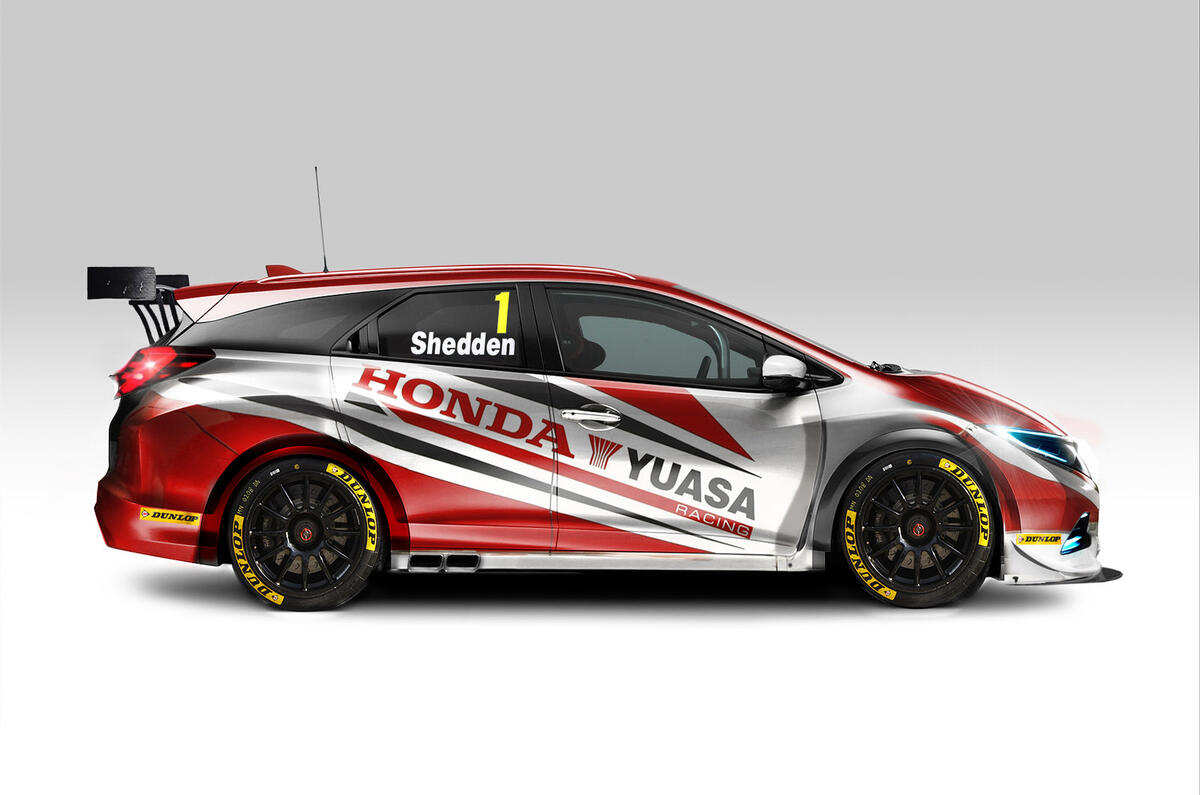The Honda Yuasa Racing team caused a bit of a stir when it revealed its 2014 British Touring Car Championship racer. It will replace the ultra-successful hatchback version of its Honda Civic with the Tourer model. It’s an unusual choice: there hasn’t been an estate car on the BTCC grid since the end of the 1994 season.
Given that touring cars don’t have much need for extra luggage space, it does beg the question why. But with the compact estate market that the Civic Tourer sits in growing steadily, it’s a good chance for Honda UK to push the sporting credentials of the model. Plus, Civic drivers have won the last three BTCC titles, so this is a good way of maintaining interest in the programme.
The team says the weight, wheelbase, layout and suspension of the two cars will be the same, so it shouldn’t harm the competitiveness of the machine. Having become used to seeing the compact Civic tearing up the circuits, it's going to take me a bit of time to adjust to the Tourer version. Still, I'm willing to give it a go, because it's always refreshing to see a bit of variety on the grid.
The last estate to race in the BTCC was the Volvo 850. Unlike the Civic Tourer, it was a proper square-sided slab of a car - and I loved it. The sight of an estate car in full racing livery hopping over a kerb was just so wonderfully... odd. It was a brilliant PR coup by Volvo, which claimed it had chosen the estate for its aerodynamic benefits. It gained an unfeasible amount of publicity for a car that never bettered fifth place.
The 850 estate lasted just a single season, before being replaced by the saloon model for 1995 – ostensibly because new BTCC rules allowing rear wings would disadvantage an estate. The 850 saloon won races, and Rickard Rydell won the 1998 title in the later, and far sleeker, S40 model. But it's the estate car that is arguably still most fondly recalled.
If you think an estate car is an odd racing machine, how about a pick-up truck? There are whole championships for those. In 1995, NASCAR, which had previously run championships purely for stock cars, set up a national championship for truck racing. What might have seemed a novelty at first was a genius move, reflecting the fact that the most popular vehicle sold in America – the Ford F-150 – was a pick-up. The Camping World Truck Series now sits as NASCAR’s third tier national championship, and most of the manufacturers in the top-level Sprint Cup also have a racing pick-up.
Of course, not every PR-driven unusual car choice is a great success. In rallying, Peugeot's decision to replace the hugely successful but ageing Peugeot 206 WRC with a 307cc in 2004 was driven by the marketing men. It was an odd choice: to meet the rules the folding roof - surely the main selling point of a hard-top convertible - had to be replaced by a permanently shut one. And the resultant machine struggled on the stages. It took three World Rally Championship wins in two seasons, all of which owed more to the huge talents of driver Marcus Gronholm than the car itself.











Join the debate
Add your comment
Mercedes SL